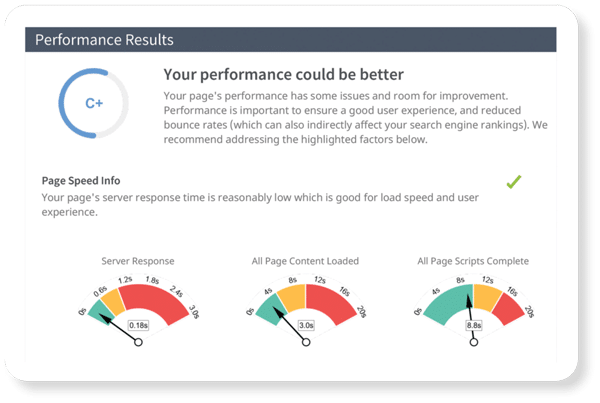As we’ve said in this space before, Google wants searchers to be happy with the results its algorithm delivers. That will keep them in the Google world, far from the Bings and DuckDuckGos out there.
When weighing the happiness of searchers, you would need to consider the “experience” they have when submitting their queries and having Google answer them in a satisfying way. That is what the New Year will bring when Google goes live with its newest update to its search algorithm, titled Google Page Experience. In the simplest way to look at it, this coming update will ensure user-friendly sites will rank higher than sites that aren’t.
Since we’re all thrilled that the worthless year of 2020 is about to become past tense, let’s look to how the Google Page Experience update will change site rankings in 2021.
How will Google measure “experience?”
Since everyone has been basically locked down and unable to have much of a normal life, Google has decided to delay this update until 2021, and the company has been providing more information about what the update will involve. The idea is to let companies adjust their websites to meet the new criteria.
What are those criteria? Google is saying user experience will be measured by a new set of metrics called Core Web Vitals. Much of this won’t be new, as you would assume. After all page rankings have always sought to make searchers happy. But this quantifies them a bit. These metrics seek to understand how a user will perceive the experience he or she has with a web page. They will take into account if the page loads quickly, if it is mobile-friendly, if it runs on HTTPS, if it doesn’t have intrusive ads, and if the content loads without jumping around as elements change place.
Core Web Vitals
These are the specific factors Google will be weighing when measuring a page’s experience with the user.
- Largest Contentful Paint (LCP) — This measures loading performance. A good site should have its main content loaded within 2.5 seconds of when the page starts to load.
- First Input Delay (FID) — This measures the time from when a user first interacts with a page to the time when the browser is actually able to begin processing event handlers in response to that interaction. A good site should have an FID of less than 100 milliseconds.
- Cumulative Layout Shift (CLS) — This is how stable the elements on the page are. For instance, you’re trying to click on a deeper link on the page, but then an ad pushes the page downward and you click on the ad, which was not your intention. This can be very annoying, and pages that are constantly loading popups, video boxes, and other junk have lots of CLS. Google wants less of that. To be a good experience, a site needs a CLS score of less than 0.1.
- Mobile-Friendly — Mobile-friendly sites don’t try to load desktop design into a mobile format, which makes the site almost unusable. If well designed, your site should have different characteristics when it is opened on a mobile device.
- Safe Browsing — The page doesn’t contain malicious or deceptive content. No malware. No click bait.
- HTTPS — The page is served over HTTPS.
- No intrusive interstitials — These are various layout items that make it hard for the user to access the content. For instance, a popup that covers the main content of the page is intrusive. Displaying a standalone interstitial that the user has to dismiss before accessing the main content is also a no-no. There are exceptions for musts. For instance, if a site has to tell you it uses cookies, those popups aren’t punished. Same for legal verification and similar things.
When will Google Page Experience take effect?
Google has delayed this update due to the topsy turvy world created by COVID-19. It has said it will give six-months’ notice before it goes live with this update. It’s not known what percentage of searches this update will affect. For instance, the BERT update impacted one out of every 10 queries. Odds are it will have a noticeable impact, however, as Google sees these criteria as very important to the user experience.
We already do that stuff
If you’re one of our MyAdvice practices, to quote Stevie Wonder, “Don’t you worry ‘bout a thing” with this new Google Page Experience update. Why? We already follow each of these criteria for every site we build. From fast load times to not allowing clutter to move elements, from every site we build being HTTPS to every site being mobile friendly from the first step of design — we believe in building only the finest, easiest-to-use, most informative, best functioning websites on the web. That’s because we were building and optimizing sites for the medical world long before the term search engine optimization was even a thing. This isn’t our first rodeo.
So, if you’re a client, this algorithm update should suit your practice website just fine. If you’re not a client, don’t you want a site that Google feels provides a great experience to users? Call us at (435) 575-7470 or fill out our contact form and let’s talk.


